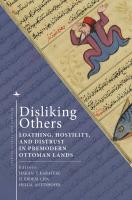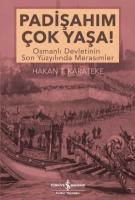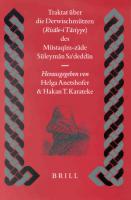
Academic Bio
I am a cultural historian of the Ottoman Empire and modern Turkey. It is, of course, hard to clearly define what culture is and what the study of a culture entails. It will, by all definitions, include an infinite variety of topics. I would like to think that methodologies and approaches to the topics may be as important in defining how a cultural historian works. Pondering about what themes may or may not be considered among the topics of cultural history seems less productive. I am eager to spark interest among my students in methodologies and topics to properly study the cultural history of the Ottoman and Turkish worlds.
Having been trained as a philologist and literary historian, I do enjoy exploring the exciting realms where philology and history intersect. I cannot think of a more enjoyable occupation than reading and reflecting on Ottoman texts. I also take pleasure in reading and studying early Republican and modern Turkish literature.
I see it as one of my primary tasks as a teacher to familiarize my students with the methodology of approaching a text, how to interpret it, how to place texts into a larger context, how to penetrate the author’s mind, how to reconstruct his world and mentality, and how to find more information and guess appropriately, if necessary, as to the author’s social and scholarly references.
I have published a few articles in the recent years on the transformation of Ottoman historiography during the nineteenth century. I am now working the articles and my new findings into a monograph which will survey the changes in history-writing practices, methods, concepts, and sources, with aims to arrive at larger conclusions concerning intellectual transformations.
Another ongoing project titled Ottoman Turkish: The Cultural History of a Language seeks to establish a narrative of the history of the Ottoman Turkish language by exploring and reconstructing the changing perceptions of the Turkish language over several centuries, as held by speakers living primarily in the Ottoman domains. A narrative of the changing attitudes and mindset of Turkish speakers, the psychological implications of being a speaker of Turkish, and finally, the attitudes of others towards Turkish speakers will be the major contribution of the project. The subject is mammoth, the sources to be covered vast. It will keep me busy for at least a few more years to come.
Selected Publications
- Traktat über die Derwischmützen ( Risale-i taciyye ) des Müstaqim–zade Süleyman Sa'deddin (st.1788) . Leiden: E.J. Brill, 2001. [coauthored with H. Anetshofer].
- Evliya Çelebi’s Written Sources. Editors Hakan Karateke and Hatice Aynur. Ankara: Turkish Historical Society, 2012.
- The Poets of Scutari (Albania)’ and Other Works by Ali Emiri. Istanbul: Enderun, 1995. [in Turkish]. New e-book edition: İşkodra Vilayeti Osmanlı Şairleri. Ankara: T.C. Kültür ve Turizm Bakanlığı Kütüphaneler ve Yayımlar Genel Müdürlüğü, 2018.
In progress
- The Ottoman World: A Cultural History Reader, 1400-1700. Under contract with University of California Press.
Recent & Regularly Taught Courses
- NEHC 20012 Ancient Empires-2 The Ottoman Empire
- TURK 40586-40587 Advanced Ottoman Reading I-II
- NEHC 30822 Topics in Ottoman Cultural History
- NEHC 30815 Languages of the Ottoman Empire







